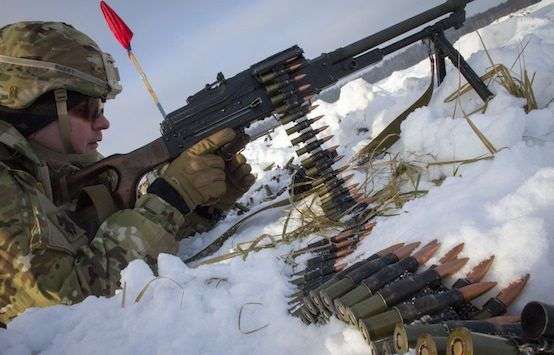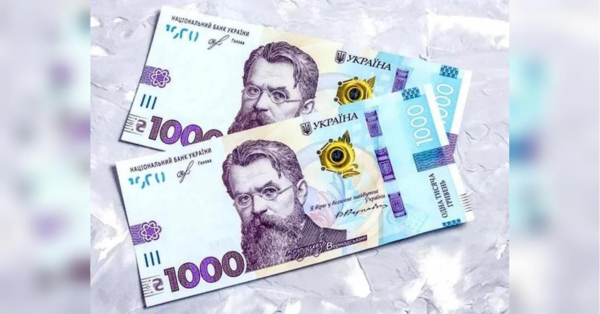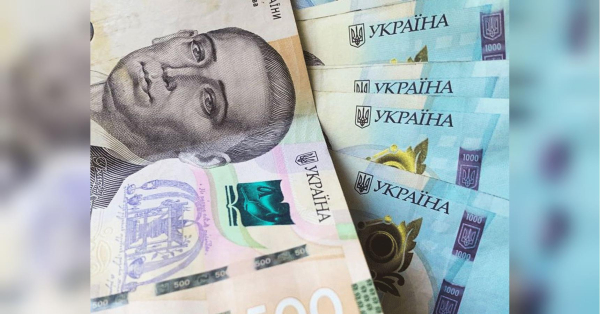
Recently Ukraine has been thrown into the spotlight as Democrats gear up to impeach President Donald Trump. More important, though, is its role in damaging America’s relations with Russia, which has resulted in a mini-Cold War that the U.S. needs to end.
Ukraine is in a bad neighborhood. During the 17th century, the country was divided between Poland and Russia, and eventually ended up as part of the Russian Empire. Kiev then enjoyed only the briefest of liberations after the 1917 Russian Revolution, before being reabsorbed by the Soviet Union. It later suffered from a devastating famine as Moscow confiscated food and collectivized agriculture. Ukraine was ravaged during Germany’s World War II invasion, and guerrilla resistance to renewed Soviet control continued for years afterwards.
In 1991, the collapse of the U.S.S.R. gave Ukraine another, more enduring chance for independence. However, the new nation’s development was fraught: GDP dropped by 60 percent and corruption burgeoned. Ukraine suffered under a succession of corrupt, self-serving, and ineffective leaders, as the U.S., Europe, and Russia battled for influence.
In 2014, Washington and European governments backed a street putsch against the elected, though highly corrupt, pro-Russian president, Viktor Yanukovych. The Putin government responded by annexing Crimea and backing separatist forces in Eastern Ukraine’s Donbass region. Washington and Brussels imposed economic sanctions on Russia and provided military aid to Kiev.
Advertisement
The West versus Russia quickly became a “frozen” conflict. Moscow reincorporated Crimea into Russia, from which it had been detached in 1954 as part of internal Soviet politics. In the Donbass, more than a score of ceasefires came and went. Both Ukraine and Russia failed to fulfill the 2016 Minsk agreements, which sought to end the conflict.
In excess of 13,000 people, mostly Ukrainians, are known to have died in this war, and some two million have been forced from their homes. The economy of eastern Ukraine has collapsed. Ukraine has suffered through painful economic dislocation and political division. Meanwhile, several hundred Russians are believed to have been killed fighting in the Donbass. Western sanctions have damaged Russia’s weak economy. And although the majority of Crimeans probably wanted to join Russia, opposition activists and journalists have been abducted, brutalized, and/or imprisoned. The Ukrainian Orthodox Church has been closed and Tartars have been persecuted.
The most important geopolitical impact has been to poison Russia’s relations with the West. Moscow’s aggressions against Ukraine cannot be justified, but the U.S. and Europe did much to create the underlying suspicion and hostility. Recently declassified documents reveal the degree to which Western officials misled Moscow about their intention to expand NATO. Allied support for adding Georgia and Ukraine, which would have greatly expanded Russian vulnerability, generated a particularly strong reaction in Moscow. The dismemberment of Serbia with no consideration of Russia’s interests was another irritant, along with Western support for “color revolutions” elsewhere, including in Tbilisi. The ouster of Yanukovych finally triggered Putin’s brutal response.
Washington and Brussels apparently did not view their policies as threatening to Russia. However, had Moscow ousted an elected Mexican president friendly to America, while inviting the new government to join the Warsaw Pact, and worked with a coalition of Central American states to divert Mexican trade from the U.S., officials in Washington would not have been pleased. They certainly wouldn’t have been overly concerned about juridical niceties in responding.
- Time for Ukraine—and America—to Make a Deal With Russia
- Lviv, Ukraine: Crossroads Between East and West
This explains (though does not justify) Russia’s hostile response. Subsequent allied policies then turned the breach in relations into a gulf. The U.S. and European Union imposed a series of economic sanctions. Moreover, Washington edged closer to military confrontation with its provision of security assistance to Kiev. Moscow responded by challenging America from Syria to Venezuela.
It also began moving towards China. The two nations’ differences are many and their relationship is unstable. However, as long as their antagonism towards Washington exceeds their discomfort with each other, they will cooperate to block what they see as America’s pursuit of global hegemony.
Why is the U.S. entangled in the Ukrainian imbroglio? During the Cold War, Ukraine was one of the fabled “captive nations,” backed by vigorous advocacy from Ukrainian Americans. After the Soviet Union collapsed, they joined other groups lobbying on behalf of ethnic brethren to speed NATO’s expansion eastward. Security policy turned into a matter of ethnic solidarity, to be pursued irrespective of cost and risk.
To more traditional hawks who are always seeking an enemy, the issue is less pro-Ukraine than anti-Russia. Mitt Romney, the Republican Party’s 2012 presidential nominee, improbably attacked Russia as America’s most dangerous adversary. Hence the GOP’s counterproductive determination to bring Kiev into NATO. Originally Washington saw the transatlantic alliance as a means to confront the Soviet menace; now it views the pact as a form of charity.
After the Soviet collapse, the U.S. pushed NATO eastward into nations that neither mattered strategically nor could be easily protected, most notably in the Balkans and Baltics. Even worse were Georgia and Ukraine, security black holes that would bring with them ongoing conflicts with Russia, possibly triggering a larger war between NATO and Moscow.
Ukraine never had been a matter of U.S. security. For most of America’s history, the territory was controlled by either the Russian Empire or the Soviet Union. Washington’s Cold War sympathies represented fraternal concerns, not security essentials. Today, without Kiev’s aid, the U.S. and Europe would still have overwhelming conventional forces to be brought into any conflict with Moscow. However, adding Ukraine to NATO would increase the risk of a confrontation with a nuclear armed power. Russia’s limitations when it comes to its conventional military would make a resort to nuclear weapons more likely in any conflict.
Nevertheless, George W. Bush’s aggressively neoconservative administration won backing for Georgian and Ukrainian membership in NATO and considered intervening militarily in the Russo-Georgian war. However, European nations that feared conflict with Moscow blocked plans for NATO expansion, which went into cold storage. Although alliance officials still officially backed membership for Ukraine, it remains unattainable so long as conflict burns hot with Russia.
In the meantime, Washington has treated Ukraine as a de facto military ally, offering economic and security assistance. The U.S. has provided $1.5 billion for Ukrainian training and weapons, including anti-tank Javelin missiles. Explained Obama administration defense secretary Ashton Carter: “Ukraine would never be where it is without that support from the United States.”
Equally important, the perception of U.S. backing made the Kiev government, headed by President Petro Poroshenko, less willing to pursue a diplomatic settlement with Russia. Thus did Ukraine, no less than Russia, almost immediately violate the internationally backed Minsk accord.
Kiev’s role as a political football highlights the need for Washington to pursue an enduring political settlement with Russia. European governments are growing restless; France has taken the lead in seeking better relations with Moscow. Germany is unhappy with U.S. attempts to block the planned Nord Stream 2 natural gas pipeline. In Ukraine, President Volodymyr Zelensky has campaigned to end the conflict.
Negotiators for Russia, Ukraine, and the Organization for Security and Cooperation in Europe recently met in Minsk to revive the agreement previously reached in the Belarus capital. They set an election schedule in the contested east, to be followed by passage of Ukrainian legislation to grant the region greater autonomy and separatists legal immunity. Despite strong opposition from nationalists, passage is likely since Zelensky’s party holds a solid legislative majority.
Many challenges remain, but the West could aid this process by respecting Russian security concerns. The U.S. and its allies should formally foreclose Ukraine’s membership in the transatlantic alliance and end lethal military aid. After receiving those assurances, Moscow would be expected to resolve the Donbass conflict, presumably along the lines of Minsk: Ukraine protects local autonomy while Russia exits the fight. Sanctions against Russia would be lifted. Ukrainians would be left to choose their economic orientation, since the country would likely be split between east and west for some time to come. The West would accept Russia’s control of Crimea while refusing to formally recognize the conquest—absent a genuinely independent referendum with independent monitors.
Such a compromise would be controversial. Washington’s permanent war lobby would object. Hyper-nationalistic Ukrainians would double down on calling Zelensky a traitor. Eastern Europeans would complain about appeasing Russia. However, such a compromise would certainly be better than endless conflict.
Doug Bandow is a senior fellow at the Cato Institute and former special assistant to President Ronald Reagan. He is the author of Foreign Follies: America’s New Global Empire.
Sourse: theamericanconservative.com






